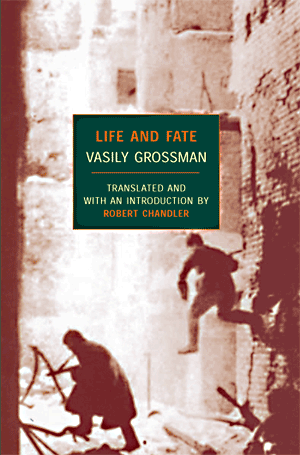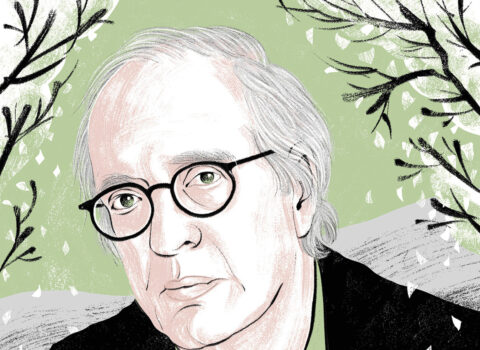Here’s a sentence that stopped me this weekend:
For a moment he seemed to be in control of the whirlpool that had seized hold of him; then a thick black pitch seemed to pour into his eyes and nostrils—there was no air left to breathe, no stars over his head, nothing but this darkness, this ravine and these strange creatures rustling through the dry grass.
We are in the head of a Soviet commissar fighting in the Battle of Stalingrad. He has run to the lip of a ravine and is staring into its roiling contents, which his mind registers “as though a huge black cauldron were boiling”. There are “dim figures in the darkness,” German soldiers, which in the fear and horror of the tumult his brain sees as “a vast pit full of hundreds of poisonous snakes… slithering about in confusion, hissing and rustling through the dry grass.” Then comes the sentence above, in which the vessel of the self breaks, and contents spill.

The structure of this long sentence is straightforward, distillable to the form “For a moment…; then….” The first part of the sentence establishes a state, a roiling but reportable one. A ravine is before our reporter, one metaphorically filled with snakes and boiling water but literally with Germans shooting at Soviets. Our reporter is dependably seizing the particulars of the chaos of battle, but as the sentence shifts into second gear, we see him seized by them—by “then,” which ushers in a counterstate. Sight becomes darkness, blindness; no air, no stars, nothing, only sound. The ophidian Germans remain, but only as “creatures rustling through the dry grass.”
Soldiers battle in darkness. Such writing illuminates, even in translation. Robert Chandler is responsible for turning Vasily Grossman’s…
?? ????????, ?? ?????? ????????? ??????????? ??? ??????????, ?? ???????? ?????? ?????????? ???, ? ????????, ?????? ???????? ???? ?????? ??? ? ?????, ? ??????, ? ?? ??? ??????? ??? ??????? ? ??? ????????? ???? ??? ???????, ???? ???? ????, ????? ? ???????? ????????, ???????? ? ???????.
….into the lucidity above, from ????? ? ??????, which New York Review Books brought back into print in 2006 as Life and Fate. Without it, we non-Russianists could only experience Grossman via the blithe ejecta of Google Translate, which renders the richness above, thus:
That it seemed he had his seizure of traffic rules whirlpool, the feeling cover his loss, and seemed to flow thick tar him in the darkness eyes, nostrils in, and certainly no air to breath and there is no starry sky above head, there is only darkness, ravine and terrible creatures, shurshaschie in buryane.





